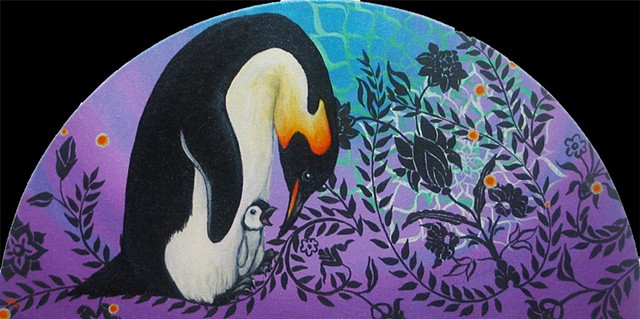Animals
“More than 150 Bird species are known or suspected to have disappeared since 1500, almost entirely because of human activity, and the process continues today: wild populations of at least 17 species were lost in the quarter of the 20th century. There is no road back for the Guam flycatcher (Myiagra freycineti), devoured by alien tree snakes, and no second chance for the Columbian grebe (Podiceps andinus), a victim of wetland loss, pollution, over hunting, and predation by introduced trout.
Extinction officially threatens 1.211species – roughly one in eight of all birds. Of these globally threatened birds (GTBs), 179 are critically endangered. They stand at the brink of oblivion because of rapid declines or dismally small populations or ranges. An estimated 77 species are represented by less than 50 individuals, rendering them very vulnerable to environment fluctuations and catastrophes, to demographic vagaries (one year, perhaps, most offspring might be male), and to a variety of social and genetic disruptions. At last count there were 10 pairs of Tahiti monarch (Pomarea nigra) in French Polynesia and 12 wild Bali starlings (Leucopsar rothschildi). Time may have run out on Hawaii’s po’ouli (Melamprosops phaeosoma) when the last individual in captivity died late last year and the two in the wild haven’t been seen for some months. Taking into account this overcrowded emergency ward of ailing species, and given the time lag between habitat loss and extinction, a sizable proportion of the world’s birds may be living on borrowed time.
But extinction is only part of the story. Even if extinction is averted, a world full of rare birds, clinging to existence in captive breeding facilities and pockets of protected habitat isolated in an overpopulated, intensively cultivated, industrialized landscape, is hardly cause for celebration. Unfortunately, there are plenty of signs that such a world looms before us. “
- Listening to the birds : State of the wild 2006 Tobias, Bennun, Stattersfield
The case in a nutshell: If you haven’t seen “March of the Penguins” (or “Happy Feet” or any number of arctic critter flicks out there) by now you’ve probably been on vacation in another country for several years. Penguins have become the poster child for arctic melting and global weather change. We’ve all marveled at how they survive and how they endure, how their very existence is emblematic of both a strong character and tenderness. We wonder at their predicament and yet we respect and identify with their struggles. (This is why they are so effective as a poster child.)
But the cold reality is, that their ice is melting and a delicate balance that has been kept for thousands of years is having the rug pulled out from under it. Unfortunately, global warming is not something you “believe” in, it’s the truth, and the truth hurts. The specific numbers are still being debated, but simply, our reckless dumping of foreign materials into our atmosphere, our waters and on our lands has caused a change to begin, and if it’s not brought under control very soon, penguins (as well as their poster children counterparts on the opposite end of the globe, polar bears) will have absolutely nothing left to eat, nowhere to live and become nothing but a memory themselves.
One of many solutions we can help with: There’s really so many simple and easy ways we can make a difference in this arena. Here’s one: buy a stainless steel water bottle. Plastic water bottles take a lot of energy and resources to produce and just about as much to recycle, as well as being unhealthy for you by leeching harmful cancer causing chemicals into your water. There are millions of plastic bottles in garbage dumps as well, which will be there approximately forever because they don’t decompose. Stainless steel water bottles are clean, they don’t leech into your water, and your can throw it in the dishwasher to clean. Brilliant! You can buy them on ebay for real cheap too. You’ll be conserving energy, being much more healthy and watching your budget by not buying so many bottles of water at $1.25 a pop (have you ever thought about how much money you spend on water bottles a year?) Amazing isn’t it how even the littlest things can make a difference.
